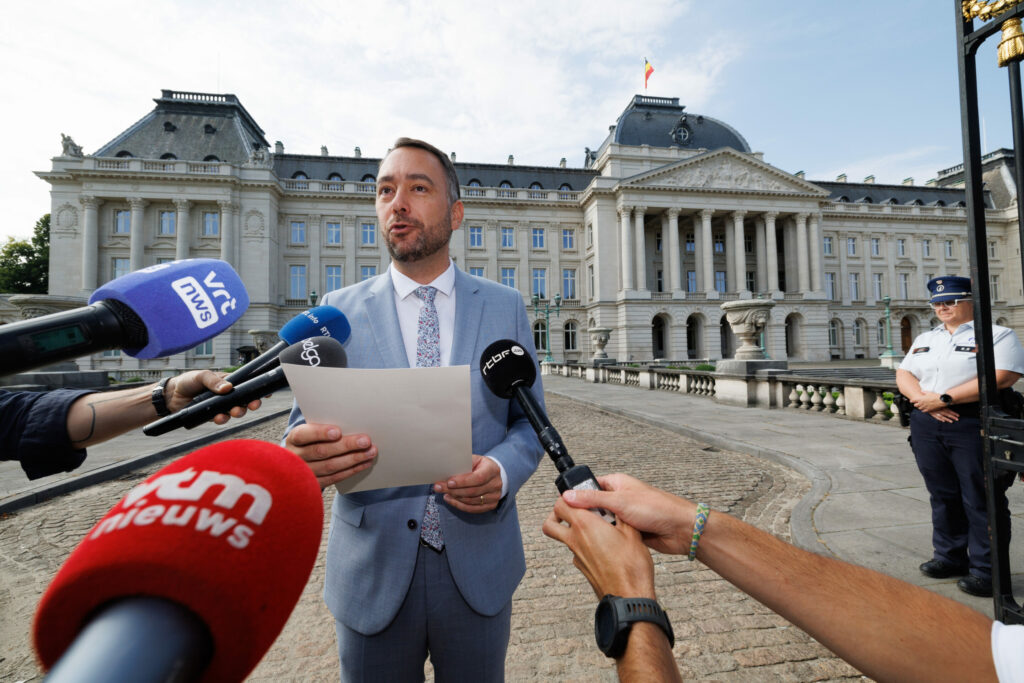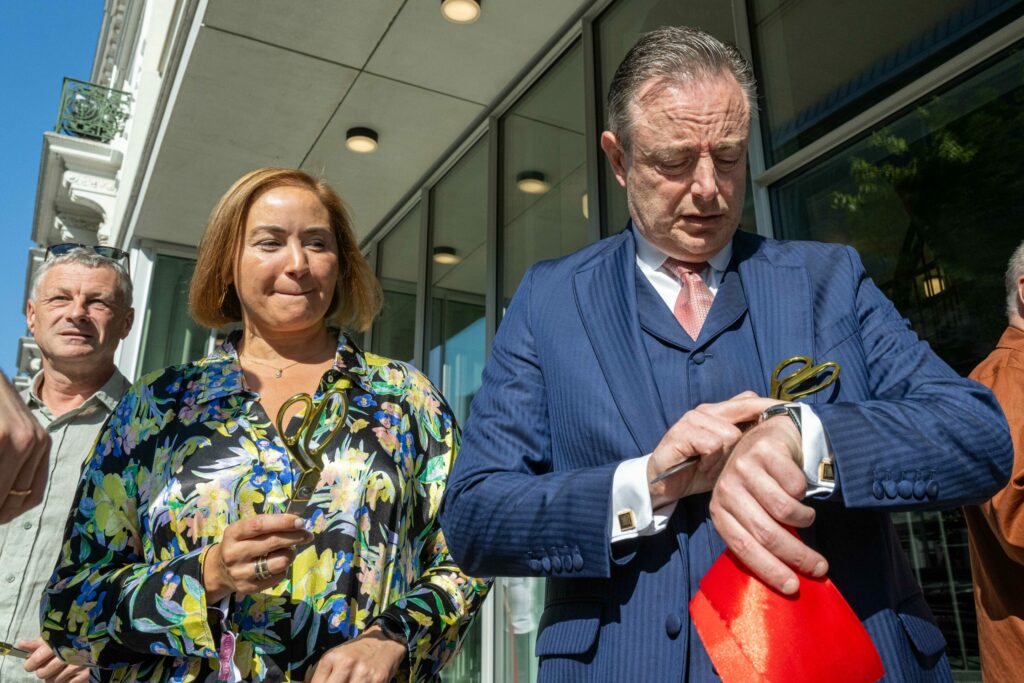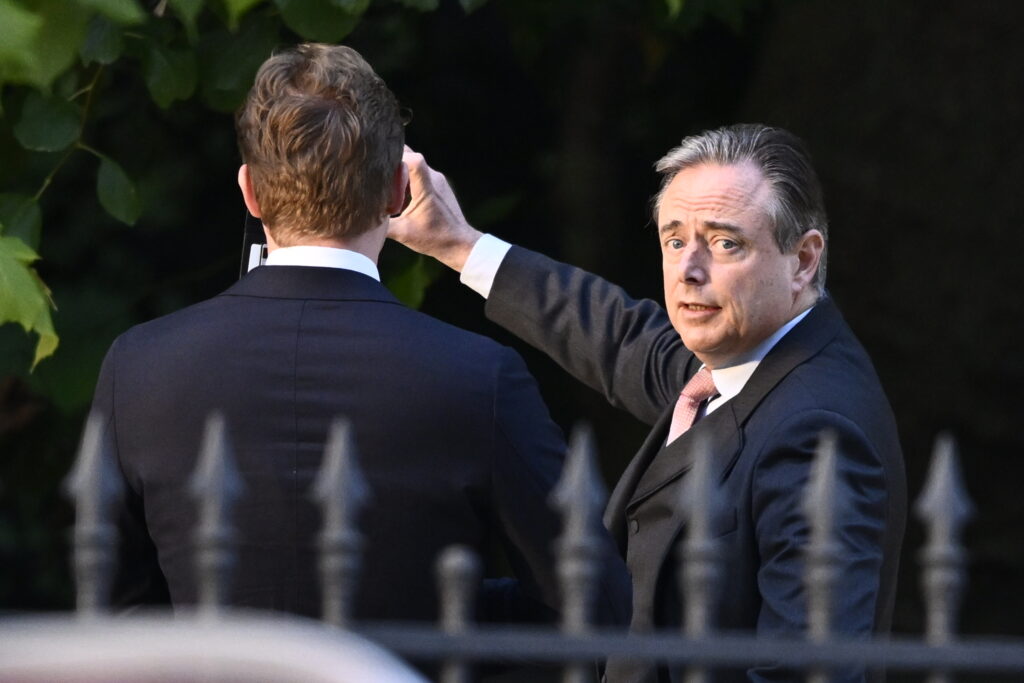Previous formator Bart De Wever (N-VA) has been reappointed by the King so the Federal 'Arizona' Government talks can resume as soon as possible. Does that mean another Belgian government formation crisis has been averted?
Following De Wever's resignation as formator and Les Engagés leader Maxime Prévot's brief stint as mediator to iron out the creases, it is now again up to De Wever to see the negotiations through to the end and ensure that N-VA, CD&V, Vooruit, MR and Les Engagés form the Federal 'Arizona' Government.
"After a week and a half, Bart De Wever is formator again. So much for the first crisis in the negotiations, it has been averted," said political scientist Dave Sinardet (VUB). "It will perhaps not be the last, but is that so abnormal given the ideological diversity of the parties around the table and their difficult task?"
This time, De Wever has been given until 23 September before he is expected to update the King on his progress again.
Getting everyone around the table
The first attempt at forming the Federal Government failed because Francophone liberal MR could not live with the fiscal concessions – specifically the capital gains tax on shares – that De Wever had included in his much-discussed "socio-economic super-note" to get Flemish socialist Vooruit (the only left-leaning party in an otherwise centre-right government) on board.
As the negotiations remained deadlocked for several days with no solution in sight, De Wever handed in his resignation to the King. This, however, did not mean the end of De Wever's envisaged 'Arizona' coalition, as the King appointed Prévot as mediator the next day, giving him the task of bringing the parties' positions closer together.
In practice, Prévot mainly bought time to calm things down: he organised one-on-one meetings with the other four parties several times in the past week. Only twice did he call all the leaders together at the same time; the first time to discuss Belgium's next European Commissioner this weekend.
While they did not succeed in appointing a candidate at the time, analysts called it a clever move from Prévot as a way to get everyone around the same table and find common ground for the negotiations again. (In the meantime, MR's Hadja Lahbib has been appointed as the Belgian EU Commissioner.)

Les Engagés' leader Maxime Prévot pictured talking to the press after a meeting at the Royal Palace, Monday 02 September 2024. Credit: Belga/Benoit Doppagne
On Sunday evening, Prévot met again with the five party leaders, not to discuss the content of the negotiations but to instead present a new working method. De Wever's "super-note" (to reform the labour market, taxation and pensions) has now been put on hold – with other issues to be discussed first.
This will allow progress to be made while the nervousness surrounding the capital gains tax, for example, can cool down. As De Wever already prepared a negotiating note on nearly all federal policy areas during his first round as formator, this work can – theoretically – be done quickly.
These federal policy notes (on topics such as health, climate, defence, mobility and migration, for example) have already been discussed extensively, with parties having also passed on their comments and desired adjustments in detail. However, negotiators have not moved beyond these topics following the discussions on the "super-note" stalled the talks.
Prime Minister De Wever?
All parties around the table reportedly already see De Wever as the inevitable next Prime Minister of Belgium. With this approach, it allows the Flemish nationalist to pick up the negotiations where he left off.
This is how Prévot managed to ensure the 'Arizona' coalition remained on track, without really discussing the content, even though it might arrive slightly later than hoped for.
Yet everyone realises that the tough budget discussions will need to be had. De Wever's initial ambition was to have a Federal Government in place by 20 September – the date that EU Member States must submit a multi-annual budget plan to the European Commission.

N-VA's Bart De Wever looking at his watch. Credit: Belga/Jonas Roosens
Now, this will be an impossible task. But that date is not set in stone: the deadline can be postponed for a reasonable period, such as if there is no government with full powers. The Commission will examine the exact flexibility on a case-by-case basis, but the traditional deadline for Member States to submit the budget for the following year remains unchanged at 15 October.
Another reason for De Wever's self-imposed 20 September deadline was to stay out of the way of the municipal elections on 13 October: the party leaders will take to the streets to start campaigning at a certain point. This will likely mean that the next government will most likely not see the light of day before that date.

